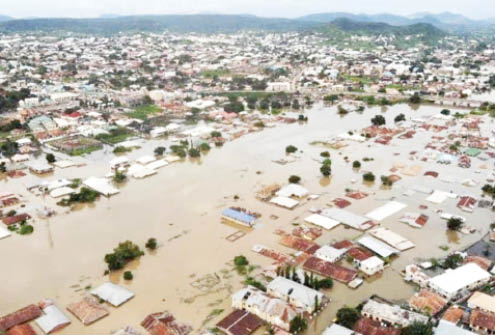Kogi State: The emerging challenges and attendant needs of a disaster zone
This year’s rainy season has come with consequences, as the torrential rainfall, the world over, has seen to flooding of the most monumental proportions, with countries like Pakistan bearing the brunt of it, losing thousands of its citizens along with a whopping $28 billion in property and agricultural produce. The rains are indeed good for […]

This year’s rainy season has come with consequences, as the torrential rainfall, the world over, has seen to flooding of the most monumental proportions, with countries like Pakistan bearing the brunt of it, losing thousands of its citizens along with a whopping $28 billion in property and agricultural produce. The rains are indeed good for the agricultural year. But the rains have, however, been a source of disaster on cities, businesses and even rural areas. So many countries have been ravaged by the flooding that has eroded so many farmlands and destroyed quite a number of cities.
Kogi State is hit the most of all the states that have experienced high levels of flooding in Nigeria this year – with very many vital infrastructural and agricultural investments that have been destroyed by floods and are submerged in very large bodies of water. Kogi, being central to the connectivity of the North central states to other parts of the country, including Abuja, is more than vital as a hub for businesses and transportation of goods and services across the country.
The importance of paying attention to the disaster in Kogi and finding urgent solutions to this very national emergency need not be over-emphasised. Whole communities have been sacked from their abodes or locations. Most of their valuables, including their houses, seem to ‘float’ in water. Boats are used to ferry people around the areas, which were otherwise navigated by cars and motorbikes before the flooding. More than 500 houses are submerged in water. Kogi being the Confluence State, is known to be home to the meeting area of the River Niger and River Benue. One cannot wonder why the level of flooding and the extent of the damage ‘harvested’ by this year’s really huge floods.
The trunk road that leads through Lokoja to Ajaokuta has been grid-locked. Motorists plying the road to move eastwards are trapped. All vehicular movement has been at a standstill as passengers and drivers are stuck helplessly.
Governor Yahaya Bello’s call for help, must be listened to, and attended to, with rapt attention and solution. He has pleaded with the federal government, asking PMB to designate Kogi as a special disaster zone. This will enable the nation to unlock its potential in terms of the deployment of Nigeria’s emergency management assets and personnel. This is not a call for Yahaya Bello, or Yahaya Bello alone; it is indeed a call to providing succour and shelter from all the destruction occasioned by the flooding.
Twelve out of 21 local governments in the state have been flooded by large bodies of water. This year’s flooding is beyond any state government’s intervention. There is hardly a single state in the federation that will not be overwhelmed by such a disastrous circumstance.
Most economic activities have come to a stop. At a time when farmers are supposed to be harvesting their produce, they are battling with the survival of dear life and property. They have become homeless and perhaps farmless.
Kogi is in distress. It needs federal government’s intervention to ease the stress. Impressing on this fact is a duty in itself. I hope and pray that this dire situation will get the attention it deserves from the humanitarian services ministry and all other relevant government departments and agencies. A stitch in time saves lives.
Tahir Tahir is Talban Bauchi.
